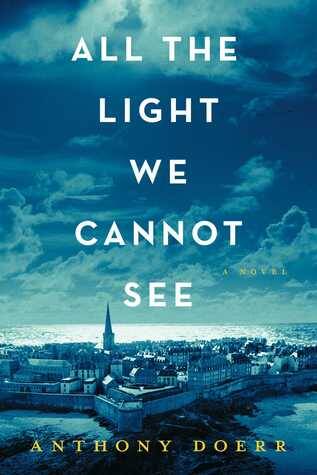Humans have a hunger, which they do not share with any other creature on earth. It’s a craving for meaning. All animals find sustenance in the world, but we alone require something else of it. We need the world to be purposeful. That’s at the core of what it means to be human, or, as we like to say, to have a soul: to want something of the world. We don’t simply consume the world physically. We do so spiritually as well. Our completion, our final self, lies somewhere out there, out in the world. That’s why, when we encounter some small part of the world, we set against it the world we already know, ceaselessly striving to fashion an image of the world as a whole: What does it all mean? What’s our place in the story fully told?
Consider this little scene from Anthony Doerr’s novel, All the Light We Cannot See (2014). As the Germans occupy her country, at the start of the Second World War, Marie-Laure is a young French girl. Fleeing Paris, she and her father take refuge, with relatives, in the seaside town of San Malo. Marie-Laure is blind, but she has learned to receive much of the world by reading in Braille. She consumes novels like Around the World in Eighty Days and Two Thousand Leagues under the Sea, but, with the advent of war, such books are unavailable to her.
The Germans have only just occupied San Malo. It’s not safe to go out. To be blind and to be confined to a house without books in Braille is to live a world too small for a human being. Souls can be famished, as much as bodies. Her great uncle Etienne understands this. Here’s how he compensates:
[T]hey play Flying Couch. They climb onto the davenport and sit side by side, and Etienne says, “Where to tonight, mademoiselle?”
“The jungle!’ Or: “Tahiti!” Or: “Mozambique!”
“Oh, it’s a long journey this time,” Etienne will say in an entirely new voice, smooth, velvety, a conductor’s drawl. “That’s the Atlantic Ocean far below, it’s shining under the moonlight, can you smell it?” Feel how cold it is up here? Feel the wind in your hair?”
“Where are we now, Uncle?”
“We’re in Borneo, can’t you tell? We’re skimming the treetops now, big leaves are glimmering below us, and there are coffee bushes over there, smell them?” and Marie-Laure will indeed smell something, whether because her uncle is passing coffee grounds beneath her nose, or because they really are flying over the coffee trees of Borneo, she does not want to decide.
They visit Scotland, New York City, Santiago. More than once they put on winter coats and visit the moon. “Can’t you feel how lightweight we are, Marie? You can move by hardly twitching a muscle!” He sets her in his wheeled desk chair and pants as he whirls her in circles until she cannot laugh anymore for the pain of it.
“Here, try some nice fresh moon flesh,” he says, and into her mouth goes something that tastes a lot like cheese. Always at the end they sit side by side again and pound the cushions, and slowly the room rematerializes around them. “Ah, he says, more quietly, his accent fading, the faintest touch of dread returning to his voice, “here we are. Home” (151).
Human beings can’t be “at home” in the world without knowing where we are in the world. We need some sense of the whole in order to know our spot. This is more than a need for geographical coordinates. It’s a spiritual compulsion. We want, we need, the world to be meaningful.
Human beings tell stories in search of meaning. If stories didn’t have something to say, didn’t address our human hunger, we’ve had no idea where they should begin or end. We’d all be like the perplexed undergraduate, who simply starts typing until five pages are filled.
There would be no point in Saint Matthew telling us the story of the five thousand fed, if physical nourishment were the only gift Christ brings us. No, to remember Christ physically feeding five thousand is to proclaim him as the very food humanity most craves: meaning itself.
Marie-Laure is blind, but she knows that she’s not meant to paw her away through the world like an animal. Her world must be meaningful. To play on the title of the novel, All the Light We Cannot See, we can’t see any given part of our world without imagining it, without seeing it, within some larger source of light. That’s the role of faith, of religion, of telling stories, of art itself: to see each small thing, each element of our lives, as part of a greater whole.
To profess faith in God is to insist that the whole, the totality for which we hunger, does indeed exist. Faith also humbly acknowledges that we do know this “whole” for what it is. We only know that it lies before us, on the horizon, deeper in the story.
The inherent contradiction in atheism, much deeper than any asserted of faith, is boldly proclaiming that there is no whole to be sought, but that is a quite unwarranted conclusion. We’d have to have arrived at the story’s end to make such an assertion, and, clearly, we have not. Else, we’d have no more need of stories.
Isaiah 55: 1-3 Romans 8: 35, 37-39 Matthew 14: 13-21








